|
Books Should Be Free Loyal Books Free Public Domain Audiobooks & eBook Downloads |
|
|
Books Should Be Free Loyal Books Free Public Domain Audiobooks & eBook Downloads |
|
Plays |
|---|
|
Book type:
Sort by:
View by:
|
By: Langdon Mitchell (1862-1935) | |
|---|---|
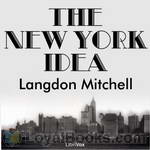 The New York Idea
The New York Idea
I find it very hard to classify "The New York Idea" under any of the established rubrics. It is rather too extravagant to rank as a comedy; it is much too serious in its purport, too searching in its character-delineation and too thoughtful in its wit, to be treated as a mere farce. Its title—not, perhaps, a very happy one—is explained in this saying of one of the characters: "Marry for whim and leave the rest to the divorce court—that's the New York idea of marriage." Like all the plays,... | |
By: Jean Racine (1639-1699) | |
|---|---|
 Phaedra
Phaedra
In the court of Louis XIV, adaptations of Greek tragedies were very popular. This play, heavily influenced by Euripides' Hippolytus, deals with love that violates social taboos. Note: In Racine's work, a new "scene" begins whenever a character enters or exits. Therefore, there are no stage directions, only a list of the characters on stage for each scene. The action is continuous for the entire act. | |
By: William Congreve (1670 -1729) | |
|---|---|
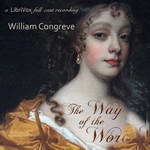 The Way of the World
The Way of the World
The Way of the World is a play written by British playwright William Congreve. It premiered in 1700 in the theatre in Lincoln's Inn Fields in London. It is widely regarded as being one of the best Restoration comedies written and is still performed sporadically to this day.The play is based around the two lovers Mirabell and Millamant (originally famously played by John Verbruggen and Anne Bracegirdle). In order for the two to get married and receive Millamant's full dowry, Mirabell must receive the blessing of Millamant's aunt, Lady Wishfort... | |
By: Eugene O'Neill | |
|---|---|
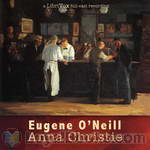 Anna Christie
Anna Christie
Eugene O'Neill's drama Anna Christie was first produced on Broadway in 1921 and received the Pulitzer Prize in 1922. It focuses on three main characters: Chris Christopherson, a Swedish captain of a coal barge and longtime seaman, his daughter Anna, who has grown up separated from her father on a Minnesota farm, and Mat Burke, an Irish stoker who works on steamships. At the beginning of the play Chris and Anna are reunited after fifteen years apart. Anna comes to live on her father's coal barge, but hides the secret of her past from him. When she meets Mat after an accident in the fog, they almost immediately fall in love - but Anna finds that forging a new future will not be easy. | |
By: Frank Wedekind (1864-1918) | |
|---|---|
 Pandora's Box
Pandora's Box
| |
 Earth Spirit
Earth Spirit
Earth Spirit (1895) (Erdgeist) is a play by the German dramatist Frank Wedekind. It forms the first part of his pairing of 'Lulu' plays (the second is Pandora's Box [1904]), both of which depict a society "riven by the demands of lust and greed". Together with Pandora's Box, Wedekind's play formed the basis for the silent film Pandora's Box (1929) starring Louise Brooks and the opera Lulu by Alban Berg in 1935 (premiered posthumously in 1937). The eponymous "earth spirit" of this play is Lulu, who Wedekind described as a woman "created to stir up great disaster... | |
By: George Farquhar (1677-1707) | |
|---|---|
 Recruiting Officer
Recruiting Officer
| |
By: Florence Holbrook (1860-1932) | |
|---|---|
 Dramatic Reader for Lower Grades
Dramatic Reader for Lower Grades
Despite the title's bland sounding name, this book is a charming collection of 16 plays for children. These little plays—well-known stories done into dialogue—were written for children who like to imagine themselves living with their favorite characters in forest, in palace, or in fairyland. Included are Cinderella, Robin Hood, William Tell, Hansel and Gretel and many more. | |
By: Francis Beaumont (1584-1616) | |
|---|---|
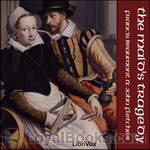 The Maid's Tragedy
The Maid's Tragedy
Beaumont and Fletcher's The Maid's Tragedy (first published 1619) is a sensational Jacobean sex tragedy. When gentleman soldier Melantius returns to Rhodes, he finds his dear friend Amintor is recently married - but not to his troth-plight love Aspatia (the maid of the title). Instead, the King has arranged a match between Amintor and Melantius' sister, the beautiful Evadne. On his wedding night, Amintor finds that his new wife has married him under false pretenses - and this unleashes a torrent of dire consequences, sexual, emotional, and ultimately political. | |
By: David Belasco (1853-1931) | |
|---|---|
 Return of Peter Grimm
Return of Peter Grimm
| |
By: Augusta Stevenson (1869-1976) | |
|---|---|
 Children's Classics in Dramatic Form
Children's Classics in Dramatic Form
| |
By: August von Kotzebue (1761-1819) | |
|---|---|
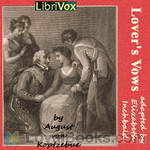 Lover's Vows
Lover's Vows
Lovers' Vows (1798), a play by Elizabeth Inchbald arguably best known now for having been featured in Jane Austen's novel Mansfield Park (1814), is one of at least four adaptations of August von Kotzebue's Das Kind der Liebe (1780; literally "Child of Love," or "Natural Son," as it is often translated), all of which were published between 1798 and 1800. Inchbald's version is the only one to have been performed. Dealing as it does with sex outside marriage and illegitimate birth, Inchbald in the Preface to the published version declares herself to have been highly sensitive to the task of adapting the original German text for "an English audience... | |
By: Frances Browne (1816-1879) | |
|---|---|
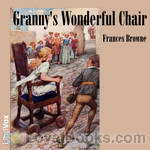 Granny's Wonderful Chair
Granny's Wonderful Chair
Her most famous work, Granny's Wonderful Chair, was published in 1856 and it is still in print to this day. It is a richly imaginative book of fairy stories and has been translated into many languages. This work, read as a child by Frances Hodgson Burnett, inspired the writings of Little Saint Elizabeth and Other Stories | |
By: Jesse Lynch Williams (1871-1929) | |
|---|---|
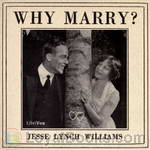 Why Marry?
Why Marry?
Why Marry? is a comedy, which "tells the truth about marriage". We find a family in the throes of proving the morality of marriage to a New Age Woman. Can the family defend marriage to this self-supporting girl? Will she be convinced that marriage is the ultimate sacredness of a relationship or will she hold to her perception that marriage is the basis of separating two lovers."Why Marry?" won the first Pulitzer Prize for Drama. | |
By: Alfred Sutro (1863-1933) | |
|---|---|
 Five Little Plays
Five Little Plays
British dramatist Alfred Sutro's collection contains five one act plays: "The Man in the Stalls," "A Marriage Has Been Arranged…", "The Man on the Kerb," "The Open Door," and "The Bracelet." The plays are performed by Amanda Friday, Libby Gohn, Elizabeth Klett, mb, Bob Neufeld, Caprisha Page, Bruce Pirie, and Algy Pug. | |
By: Kenneth McGaffrey (??-1938) | |
|---|---|
 The Sorrows of a Show Girl
The Sorrows of a Show Girl
Originally printed in The Morning Telegraph in New York, this is the story of Miss Sabrina, the show girl, and her ups and downs with the unpredictable theatrical industry and the Great White Way, the lights and glamour of Broadway. "In order to set myself right with both the public and the vast army of Sabrinas that add youth and beauty to our stage, and brilliancy and gaiety to our well known cafes, I wish to say that she is all that she should be...”- Kenneth McGaffrey | |
By: William Shakespeare (1564-1616) | |
|---|---|
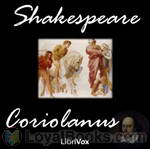 Coriolanus
Coriolanus
Shakespeare was passionately interested in the history of Rome, as is evident from plays like Titus Andronicus, Julius Caesar, and Antony and Cleopatra. His tragedy Coriolanus was probably written around 1605-07, and dramatizes the rise and fall of a great Roman general, Caius Martius (later surnamed Coriolanus because of his military victory at Corioli). This play is unusual in that it provides a strong voice for the ordinary citizens of Rome, who begin the play rioting about the high price of food, and who continually clash with Coriolanus because of his contempt for plebians. | |
By: Various | |
|---|---|
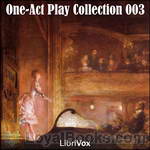 One-Act Play Collection 003
One-Act Play Collection 003
This collection of ten one-act dramas features plays by Edward Goodman, Alice Gerstenberg, Arnold Bennett, John Galsworthy, Anton Chekhov, Frank Wedekind, Moliere, Theresa Helburn, John Kendrick Bangs, and Harold Brighouse. | |
By: Euripides (480-406 BC) | |
|---|---|
 Medea
Medea
Euripides' tragedy focuses on the disintegration of the relationship between Jason, the hero who captured the Golden Fleece, and Medea, the sorceress who returned with him to Corinth and had two sons with him. As the play opens, Jason plans to marry the daughter of King Creon, and the lovesick Medea plots how to take her revenge. | |
By: Molière | |
|---|---|
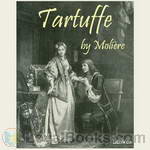 Tartuffe
Tartuffe
Jean-Baptiste Poquelin, known by his stage name Molière, was a French playwright and actor who is considered to be one of the greatest masters of comedy in Western literature. Among Molière's best-known works is Tartuffe or The Hypocrite, written in 1664. Though Tartuffe was received well by the public and even by Louis XIV, its popularity was lessened when the Archbishop of Paris issued an edict threatening excommunication for anyone who watched, performed in, or read the play.Tartuffe, a pious fraud who pretends to speak with divine authority, has insinuated himself into the household of Orgon... | |
By: Upton Sinclair (1878-1968) | |
|---|---|
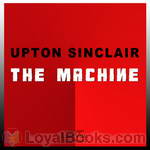 The Machine
The Machine
Upton Sinclair is best known for his novel The Jungle, an expose of the meatpacking industry. He was also a playwright whose works for the stage reflected the same progressive viewpoints found in his other writing. In The Machine, published as part of Sinclair's 1912 collection Plays of Protest, Socialist activists show a rich man's daughter the truth about the society in which she has been raised. | |
By: Various | |
|---|---|
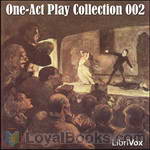 One-Act Play Collection 002
One-Act Play Collection 002
This collection of eight one-act dramas features plays by Eugene O'Neill, George Bernard Shaw, John Galsworthy, Susan Glaspell, William Dean Howells and John Millington Synge. It also includes a dramatic reading of a short story by Frank Richard Stockton. | |
By: Henrik Ibsen (1828-1906) | |
|---|---|
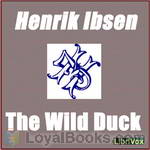 The Wild Duck
The Wild Duck
The Wild Duck (1884) (original Norwegian title: Vildanden) is by many considered Ibsen's finest work, and it is certainly the most complex. It tells the story of Gregers Werle, a young man who returns to his hometown after an extended exile and is reunited with his boyhood friend Hjalmar Ekdal. Over the course of the play, the many secrets that lie behind the Ekdals' apparently happy home are revealed to Gregers, who insists on pursuing the absolute truth, or the "Summons of the Ideal". Among these truths: Gregers' father impregnated his servant Gina, then married her off to Hjalmar to legitimize the child... | |
By: Eugene O'Neill (1888-1953) | |
|---|---|
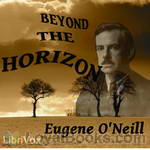 Beyond the Horizon
Beyond the Horizon
Beyond the Horizon is a 1920 play written by American playwright Eugene O'Neill. It was O'Neill's first full-length work, and the winner of the 1920 Pulitzer Prize for Drama. The play focuses on the portrait of a family, and particularly two brothers Andrew and Robert. In the first act of the play, Robert is about to go off to sea with their uncle Dick, a sea captain while Andrew looks forward to marrying his sweetheart Ruth and working on the family farm as he starts a family. | |
By: William Shakespeare (1564-1616) | |
|---|---|
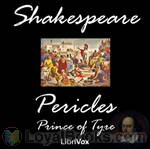 Pericles, Prince of Tyre
Pericles, Prince of Tyre
Pericles, Prince of Tyre is a Jacobean play written at least in part by William Shakespeare and included in modern editions of his collected works despite questions over its authorship, as it was not included in the First Folio. Modern editors generally agree that Shakespeare is responsible for almost exactly half the play—827 lines—the main portion after scene 9 that follows the story of Pericles and Marina. Modern textual studies indicate that the first two acts of 835 lines detailing the many voyages of Pericles were written by a mediocre collaborator, which strong evidence suggests to have been the victualler, pander, dramatist and pamphleteer George Wilkins. | |
By: John Webster (1580-1634) | |
|---|---|
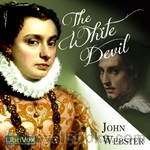 The White Devil
The White Devil
John Webster's The White Devil (1612) is a Jacobean revenge tragedy, replete with adultery, murder, ghosts, and violence. The Duke of Brachiano and Vittoria Corombona decide to kill their spouses, Isabella and Camillo, in order to be together, aided by the crafty and ambitious Flamineo, Vittoria's brother. Their actions prompt vows of revenge from Isabella's brother Francisco, the Duke of Florence, and Count Lodovico, who was secretly in love with her. The title refers to the early modern proverb that "the white devil is worse than the black," indicating the hypocrisy practiced by many of the characters in the play. | |
By: Thomas Middleton and Thomas Dekker | |
|---|---|
 The Roaring Girl
The Roaring Girl
The Roaring Girl is a rip-roaring Jacobean comedy co-written by Thomas Middleton and Thomas Dekker and first published in 1611. The play is a fictionalized dramatization of the life of Mary Frith, known as "Moll Cutpurse", a woman who had gained a reputation as a virago in the early 17th century. (The term "roaring girl" was adapted from the slang term "roaring boy", which was applied to a young man who caroused publicly, brawled, and committed petty crimes.) The play combines the exploits of the cross-dressed Moll with the amorous adventures of a trio of merchants' wives, and the forbidden romance between Sebastian Wengrave and Mary Fitzallard. | |
By: Henrik Ibsen (1828-1906) | |
|---|---|
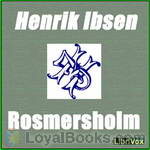 Rosmersholm
Rosmersholm
Rosmersholm is a play written in 1886 by Norwegian playwright Henrik Ibsen. In the estimation of many critics the piece is Ibsen’s masterwork, only equalled by The Wild Duck of 1884. As expressed by the protagonist, Rosmer, the theme of the play is social and political change, in which the traditional ruling classes relinquish their right to impose their ideals on the rest of society, but the action is entirely personal, resting on the conduct of the immoral, or amoral, “free thinking” heroine, Rebecca, who sets herself to undermine Rosmer’s religious and political beliefs because of his influential position in the community... | |
By: Unknown | |
|---|---|
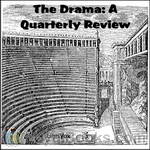 The Drama: A Quarterly Review
The Drama: A Quarterly Review
This is a collection of theatrical essays from the American quarterly The Drama, including six non-fiction works -- 3 profiles: Schnitzler, Andreyev, and O'Neill, and 3 articles: Characterization vs Situation, The Actor in England, & The Evolution of The Actor. | |
By: Arthur Wing Pinero (1855-1934) | |
|---|---|
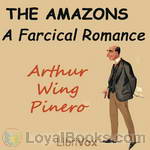 The Amazons: A Farcical Romance
The Amazons: A Farcical Romance
This 1895 farce inspired by the outlandish idea of women wearing pants, centers around the predicament of the three daughters of the eccentric Marchioness of Castlejordan, who determined to have sons, raised them like boys. She encouraged them to dress and act like boys at home, yet dress like ladies when out. As the girls come of age, they are conflicted. They want to please mother by acting as her sons, but, suddenly smitten with three gentlemen, they are compelled to grow up and be ladies. When their suitors secretly come to woo, they aren’t sure what to do……and what will mother do if she finds out? | |
By: Various | |
|---|---|
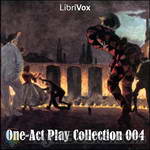 One Act Play Collection 004
One Act Play Collection 004
This collection of twelve one-act dramas features plays by James Allen, John Kendrick Bangs, Gordon Bottomley, Charles Dickens, Lord Dunsany, Susan Glaspell, George Bernard Shaw, August Strindberg, Marion Craig Wentworth, and William Butler Yeats. The plays were coordinated by Elizabeth Barr, Margaret Espaillat, Amanda Friday, Elizabeth Klett, Kristingj, David Lawrence, Algy Pug, Todd, and Chuck Williamson. | |
By: Thomas Love Peacock (1785-1866) | |
|---|---|
 Headlong Hall
Headlong Hall
Headlong Hall is the first novel by Thomas Love Peacock, published in 1815 (dated 1816). As in his later novel Crotchet Castle, Peacock assembles a group of eccentrics, each with a single monomaniacal obsession, and derives humor and social satire from their various interactions and conversations. The setting is the country estate of Squire Harry Headlong Ap-Rhaiader, Esq. in Wales. | |